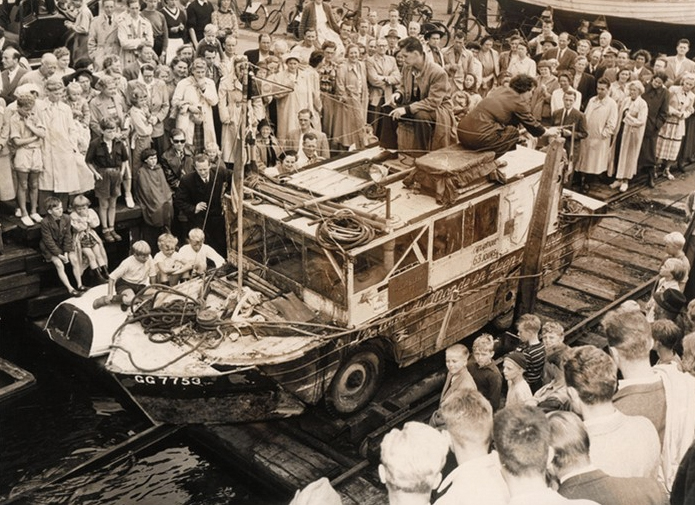- Grand Canyon National Park (Arizona)
- Bryce Canyon National Park (Utah)
- Badlands National Park (South Dakota)
- 2023 Badlands Astronomy Festival from July 14 to July 16
- Shenandoah National Park (Virginia)
- Night Sky Festival from Aug. 11 to Aug. 13
- Great Basin National Park (Nevada)
- astronomy festival from Sept. 14 to Sept. 16
- Joshua Tree National Park (California)
- Night Sky Festival on Oct. 13 and 14
Page 3 of 70
While Uruguay may be one of the more expensive South American countries, it is the most progressive, including reproductive rights for women. Plus Uruguay have some nice beaches and authentic Gauchos.
Uruguay’s digital nomad visa is for people who either work remotely for companies outside of the country or are self-employed. You can’t apply jointly with a spouse or dependents but can submit individual applications for each person.
The Western Slope of Colorado features three buoyant — but largely underrated and underacknowledged — towns that are adventure ports for outdoor enthusiasts: Durango, Silverton and Ouray.
These towns are packed with activities year-round. They’re incredibly scenic, and filled with some of the sweetest, most inviting people — and welcoming bars where said people congregate — you’ll encounter on this side of the Mississippi. They’re gold nuggets when it comes to adventure, eats and hospitality.
Alaska climate scientist Brian Brettschneider released three 21°C Road Trips, that promise to keep long-distance rubber tramp warriors comfortable as they travel around North America throughout the year.
One of the year long routes hugs the coasts, a second travels up the interior of the US, and a third route crosses into Canada and up to Alaska.
Also » Insider
Dick Proenneke in “Alone in the Wilderness” is the story of Dick Proenneke living at Twin Lakes in the Alaska wilderness.
Dick retired at age 50 in 1967 and decided to build his own cabin on the shore of Twin Lakes. He filmed his adventures so he could show his relatives in the lower 48 states what life was like in Alaska, building his cabin, hunting for food, and exploring the area.
Bob Swerer has used some of the footage from Dick’s films and created 4 videos about Dick, “Alone in the Wilderness”, “Alone in the Wilderness part 2”, “Alaska, Silence and Solitude” and “The Frozen North”. They can purchase from Bob Swerer Productions at the DickProenneke.com website.
Below are some excepts from these films.
Darrin, the Roaming Yak, continues his vehicle-based travels in the Kaokoveld/Namib Desert in northern Namibia, visiting each of the marker drums, green, orange, blue and red.
This episode continues the story of a year long stay in Namibia during the Covid19 world-wide lockdowns.
Part 1
Part 2
Binaj Gurubacharya, writing in Associated Press »
Veteran Sherpa guide Kami Rita has scaled Mount Everest for the 28th time Tuesday, beating his own record less than a week after setting it, as two guides compete with each other for the title of most climbs of the world’s highest peak.
Kami Rita, considered one of the greatest mountain guides, reached the 8,849-meter (29,032-foot) summit at 9:20 a.m. local time Tuesday, according to expedition organizer Seven Summits Treks.
His latest climb comes a day after fellow Sherpa guide Pasang Dawa matched his record of 27 trips to the summit.
Ashley Giordano, Expedition Portal »
- Wild camping without permission is prohibited in most areas of the England and Wales, and some heavily used areas in Scotland
- Watch for narrow roads, Green Zones, and the obvious driving on the left side of the road
- The Green Lane Association promotes sensible and legal driving on unsealed public roads
- Travelling overland on a budget in the UK is possible
In June and July 2022, I spent five weeks riding and exploring Armenia’s backcountry and trails, entering from Georgia in the north-east, heading south down the eastern side of the country to the Iranian border, before making my way back up to Yerevan on the western side.
In this guide, I’ve tidied up and summarised the routes I took into 8 sections for anyone who is considering a trip there. By and large these routes are good for mid-weight and lightweight dual-sport bikes with decent 50/50 tyres and similarly equipped 4x4s, though the latter should proceed with more caution than the former.
From the muddy mountains of the country’s north-eastern Tavush and Lori regions to the searing heat along the border with Iran, Armenia is an explorer’s delight. The country is slightly sleepier but no less beautiful and the people no less welcoming then its slightly more brash, northern neighbour, Georgia.
Follow this link to read the whole guide, complete with GPX files!
Thanks Ed!
~~~
Adventure Trend’s Armenia Country Profile

Ben Carlin and Half Safe arrive in Copenhagen (Source » Wikimedia / Public Domain)
Ben Carlin traveled over 17,780 kilometres (11,050 mi) by sea and 62,744 kilometres (38,987 mi) by land during the ten-year journey. Arriving in Montreal on May 1958, he had passed through 38 countries and two oceans, with the entire trip costing him around $35,000.
Born in Western Australia, he got the idea for his adventure during his time in the Madras sappers of the Indian Army engineers during World War II, but it began in America.
Fellow adventurer Dan Grec recently found Carlin’s Half-Safe on display at the Guildford Grammar School in Western Australia.
